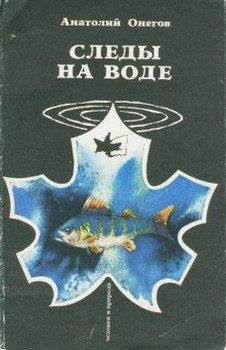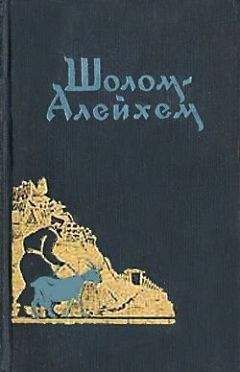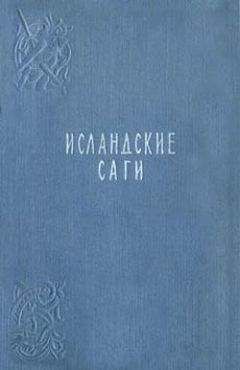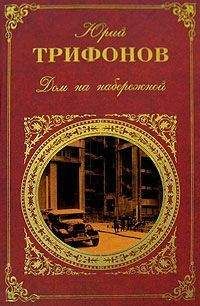Сергей Матвеев - Принцесса Кентербери и другие английские легенды / Princess of Canterbury (сборник)
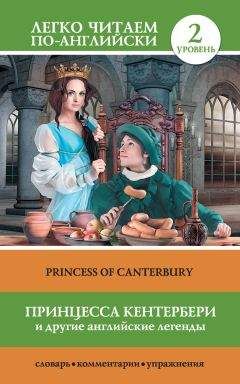
Обзор книги Сергей Матвеев - Принцесса Кентербери и другие английские легенды / Princess of Canterbury (сборник)
Принцесса Кентербери и другие английские легенды / Princess of Canterbury (сборник)
Подготовка текста, комментарии, упражнения и словарь С. А. Матвеева
© ООО «Издательство АСТ», 2014
The Wishing Ring[1]
Once upon a time there lived a young farmer. He worked very hard, and yet he was quite poor. One day he ploughed his field. Suddenly a strange woman appeared before him. And this is what she said to him:
“Why are you working so hard, and all for nothing?[2] Listen to me. Go straight on for two days until you come to a great oak. This oak stands by itself[3] and is higher than all the other trees. Fell it, and your fortune is made.[4]” And she disappeared as suddenly as she appeared.
The farmer took his axe and started on his way. He went straight on for two days. At the end of the two days he came to a place where he saw a great oak which stood by itself and was higher than the other trees.
“Now I see that the woman told me the truth,” said the farmer to himself. “I must do what she said.” And he began to fell the tree at once.
When the tree came down, a bird’s nest fell on the ground. Two little eggs in the nest were broken. From one of them came a gold ring, from the other a wonderful bird. The bird grew and grew until it was very large. It became so large that the farmer was frightened. But the wonderful bird spoke to him in a very kind voice.
“You have set me free,[5]” said the bird, “and I want to thank you for it. I shall give you the ring that was in the other egg. It isn’t an ordinary ring. It is a wishing ring. If you turn it on your finger, and say to yourself a wish, your wish will come true.[6] But you can only have one wish. After that the wishing ring will become an ordinary ring. So you must think carefully before you say your wish.”
And with these words the bird flew away. The farmer put the ring on his finger and started on the way home. In the evening he came to a town and went to a goldsmith who had many gold rings in his shop. The farmer showed him the ring and asked what it was worth.
“Next to nothing,[7]” answered the goldsmith.
The farmer laughed aloud and said, “You don’t understand anything. It is a wishing ring. It is worth more than all the rings in your shop put together.”
That goldsmith became silent; he was greedy enough. Though he was very rich, he always wanted to have more money. So he asked the farmer to stay at his house for the night.
“It will bring me good fortune,[8]” he said, “if a man with such a wonderful ring spends the night here.”
The goldsmith gave the farmer some bottles of wine to drink and talked to him like a friend. But he was a false friend, indeed! At night, when the farmer was fast asleep, he took the ring from his finger, and put another one in its place, which looked just like the wishing ring.
In the morning the goldsmith could hardly wait[9] until his guest left his house. As soon as the farmer went away, he hurried to his shop, closed the shutters, locked the door, turned the ring on his finger and said, “I wish to have a hundred thousand sovereigns.[10]”
As soon as he said these words the sovereigns began to come raining down.[11] The sovereigns fell on his head, his shoulders, his arms; they fell all over his body. He tried to get to the door, but the rain of gold made it impossible. Soon the gold covered all his body. He couldn’t move, and it still rained. At last the floor could bear the weight no longer, and the goldsmith and the gold fell into the cellar.
When the neighbours heard the terrible noise, they came running and broke open the door. But they were too late. The greedy goldsmith was already dead.
So they sighed and said, “What a misfortune it is to have so much money!” And they all put in their pockets as much money as they could carry and went away.
Meanwhile the farmer came home and showed the ring to his wife.
“We are lucky people,” he said, “our fortune is made. But we must be careful. We must choose the right wish.”
His wife was delighted.
“Let’s wish for some more land,” she said. “There is a nice bit of land between two of our fields. What do you say to that? I think it’s the best wish we can have.”
But the farmer answered, “I am sure we can wish for something better than that. If we work hard for a year, we shall perhaps be able to buy this bit of land.”
So they worked very hard for a year and as the harvest was good, they had enough money to buy that bit of land easily.
“You see,” said the farmer to his wife with a smile, “we have that bit of land now, and we still have our wish.”
“Then perhaps we shall wish for a cow and a horse?” offered his wife. “Our life will be easier then. We shall not have to work so much.”
“My good wife,” said the farmer, “let’s not waste our wish, just for nothing.[12] I think we shall get a horse and a cow even without it.”
So they again worked day and night for a year and the harvest was good again. At the end of the second year they had enough money to buy a horse and a cow. The farmer was very pleased and said, “Again we have got what we wanted, and we still have our wish. What lucky people we are!”
But his wife did not agree with him. She was very angry with her husband.
“You cant’ say that!” she cried. “I really can’t understand you. I wonder at you. You always complained that we had to work so much. You always wanted to have many nice and useful things. And now when you can have anything you desire, you work from morning till night and make me work as much.[13] We work and work and work. All work and no play make Jack a dull boy.[14] And the best years of our lives go by. You might be a great man – a king I dare say! You might have your cellars full of silver and gold. And you are nothing, just because you cannot decide what to wish and cannot use your wishing ring.”
“Stop worrying about this wish,” the farmer answered firmly. “We are both still young, and life is long. Remember there is only one wish in the ring. It is very easy to make a mistake. And if we make a mistake, we shall be so unhappy. We shall never forgive ourselves. No, no! We must keep our wishing ring. It has already brought us good fortune. We must not use it yet. Be reasonable, my dear. Cheer up and try to choose the best wish.”
What the farmer said was true. The ring really brought them good fortune. But they both still worked hard all day. And in the evening the farmer usually sat on the steps, smoked his pipe and talked with his neighbours.
The years went by, their children grew up, but the farmer still kept his wish. Sometimes his wife spoke to him about it, but he always answered,
“No, no, my dear. We have still a lot of time. We must not use our wishing ring yet.”
At last she saw that she couldn’t make him use the ring and gave up speaking about it.[15] Though the farmer often looked at his ring and even turned it on his finger, he never said a wish. Thirty, forty years went by. The farmer and his wife grew old, their hair was white as snow.
And so they lived happily on till one day, when they both died together, at the same time. Their children and grand-children stood around them and cried. The youngest son wanted to take the ring from the father’s finger as a remembrance; but the eldest son said,
“No, don’t take the ring. Let our dear Father keep it. He liked it so much. And Mother also often looked at it. Perhaps she once gave it to Father, when they were young.”
So they left the ring on the finger of the old farmer, who always thought it was a wishing ring, though it was not. And yet the ring had brought him as much happiness as a man could wish. Indeed, a bad thing in good hands is better than a good thing in bad hands.
Binnorie[16]
Once upon a time[17] there were two king’s daughters. They lived in a bower near the bonny mill-dams of Binnorie. And Sir William[18] came wooing the eldest and won her love and plighted troth[19] with glove and with ring. But after a time[20] he looked upon the youngest, with her cherry cheeks and golden hair, and his love grew towards her till he cared no longer for the eldest one.[21] So she hated her sister for taking away Sir William’s love, and day by day[22] her hate grew upon her, and she plotted and she planned how to get rid of her.[23]
So one fine morning, fair and clear, she said to her sister, “Let us go[24] and see our father’s boats come in at the bonny mill-stream of Binnorie.” So they went there hand in hand. And when they got to the river’s bank the youngest got upon a stone to watch for the coming of the boats. And her sister, coming behind her, caught her round the waist and dashed her into the rushing mill-stream of Binnorie.
“O sister, sister, reach me your hand!” she cried, as she floated away, “and you shall have half of all I’ve got or shall get.[25]”
“No, sister, I’ll reach you no hand of mine, for I am the heir to all your land. Shame on me if I touch the hand that has come ’twixt[26] me and my own heart’s love.[27]”
“O sister, O sister, then reach me your glove!” she cried, as she floated further away, “and you shall have your William again.”
“Sink on,” cried the cruel princess, “no hand or glove of mine you’ll touch. Sweet William will be all mine when you are sunk beneath the bonny mill-stream of Binnorie.” And she turned and went home to the king’s castle.
And the princess floated down the mill-stream, sometimes swimming and sometimes sinking, till she came near the mill. Now the miller’s daughter was cooking that day, and needed water for her cooking. And as she went to draw it from the stream, she saw something floating towards the mill-dam, and she called out, “Father! father! draw your dam.[28] There’s something white – a merrymaid[29] or a milk-white swan – coming down the stream.” So the miller hastened to the dam and stopped the heavy cruel mill-wheels. And then they took out the princess and laid her on the bank.
Fair and beautiful she looked as she lay there. In her golden hair were pearls and precious stones; you could not see her waist for her golden girdle; and the golden fringe of her white dress came down over her lily feet. But she was drowned, drowned!
And as she lay there in her beauty a famous harper passed by the mill-dam of Binnorie, and saw her sweet pale face. And though he travelled on far away[30] he never forgot that face, and after many days he came back to the bonny mill-stream of Binnorie. But then all he could find of her where they had put her to rest were her bones and her golden hair. So he made a harp out of her breastbone and her hair, and travelled on up the hill from the mill-dam of Binnorie, till he came to the castle of the king her father.
That night they were all gathered in the castle hall to hear the great harper – king and queen, their daughter and son, Sir William and all their Court. And first the harper sang to his old harp, making them joy[31] and be glad or sorrow and weep just as he liked.[32] But while he sang he put the harp he had made that day on a stone in the hall. And presently it began to sing by itself, low and clear, and the harper stopped and all were hushed.[33]
And this was what the harp sung:
“O yonder sits my father, the king,
Binnorie, O Binnorie;
And yonder sits my mother, the queen;
By the bonny mill-dams o’ Binnorie,[34]
And yonder stands my brother Hugh,[35]
Binnorie, O Binnorie;
And by him, my William, false and true;
By the bonny mill-dams o’ Binnorie.”
Then they all wondered, and the harper told them how he had seen the princess lying drowned on the bank near the bonny mill-dams o’ Binnorie, and how he had afterwards made this harp out of her hair and breastbone. Just then the harp began singing again, and this was what it sang out loud and clear:
“And there sits my sister who drowned me
By the bonny mill-dams o’ Binnorie.”
And the harp snapped and broke, and never sang more. But later this story became a ballad called “The Twa Sisters[36]”. It goes like this:
There lived a lady by the North Sea shore
(Lay the bent to the bonnie broom[37])
Two daughters were the babes she bore
(Fa la la la la la la la la la)
As one grew bright as is the sun,
(Lay the bent to the bonnie broom)
So coal black grew the elder one.
(Fa la la la la la la la la la)
A knight came riding to the lady’s door,
(Lay the bent to the bonnie broom)
He’d travelled far to be their wooer.
(Fa la la la la la la la la la)
He courted one with gloves and rings,
(Lay the bent to the bonnie broom)
But he loved the other above all things.
(Fa la la la la la la la la la)
“Oh sister, will you go with me
(Lay the bent to the bonnie broom)
To watch the ships sail on the sea?”
(Fa la la la la la la la la la)
She took her sister by the hand
(Lay the bent to the bonnie broom)
And led her down to the North Sea strand.
(Fa la la la la la la la la la)
And as they stood on the windy shore
(Lay the bent to the bonnie broom)
The dark girl threw her sister o’er.[38]
(Fa la la la la la la la la la)
Sometimes she sank, sometimes she swam,
(Lay the bent to the bonnie broom)
Crying, “Sister, reach to me your hand!
(Fa la la la la la la la la la)
“Oh Sister, Sister, let me live,
(Lay the bent to the bonnie broom)
And all that’s mine I’ll surely give.”
(Fa la la la la la la la la la)
“It’s your own true love that I’ll have and more,
(Lay the bent to the bonnie broom)
But thou shalt never come ashore.[39]”
(Fa la la la la la la la la la)
And there she floated like a swan,
(Lay the bent to the bonnie broom)
The salt sea bore her body on.
(Fa la la la la la la la la la)
Two minstrels walked along the strand
(Lay the bent to the bonnie broom)
And saw the maiden float to land.
(Fa la la la la la la la la la)
They made a harp of her breastbone,
(Lay the bent to the bonnie broom)
Whose sound would melt a heart of stone.
(Fa la la la la la la la la la)
They took three locks of her yellow hair,
(Lay the bent to the bonnie broom)
And with them strung the harp so rare.
(Fa la la la la la la la la la)
They went into her father’s hall
(Lay the bent to the bonnie broom)
To play the harp before them all,
(Fa la la la la la la la la la)
But when they laid it on a stone
(Lay the bent to the bonnie broom)
The harp began to play alone.
(Fa la la la la la la la la la)
The first string sang a doleful sound:
(Lay the bent to the bonnie broom)
“The bride her younger sister drowned.”
(Fa la la la la la la la la la)
The second string as that they tried,
(Lay the bent to the bonnie broom)
In terror sits the black-haired bride.
(Fa la la la la la la la la la)
The third string sang beneath their bow,
(Lay the bent to the bonnie broom)
“And surely now her tears will flow.[40]”
(Fa la la la la la la la la la)
Упражнения
